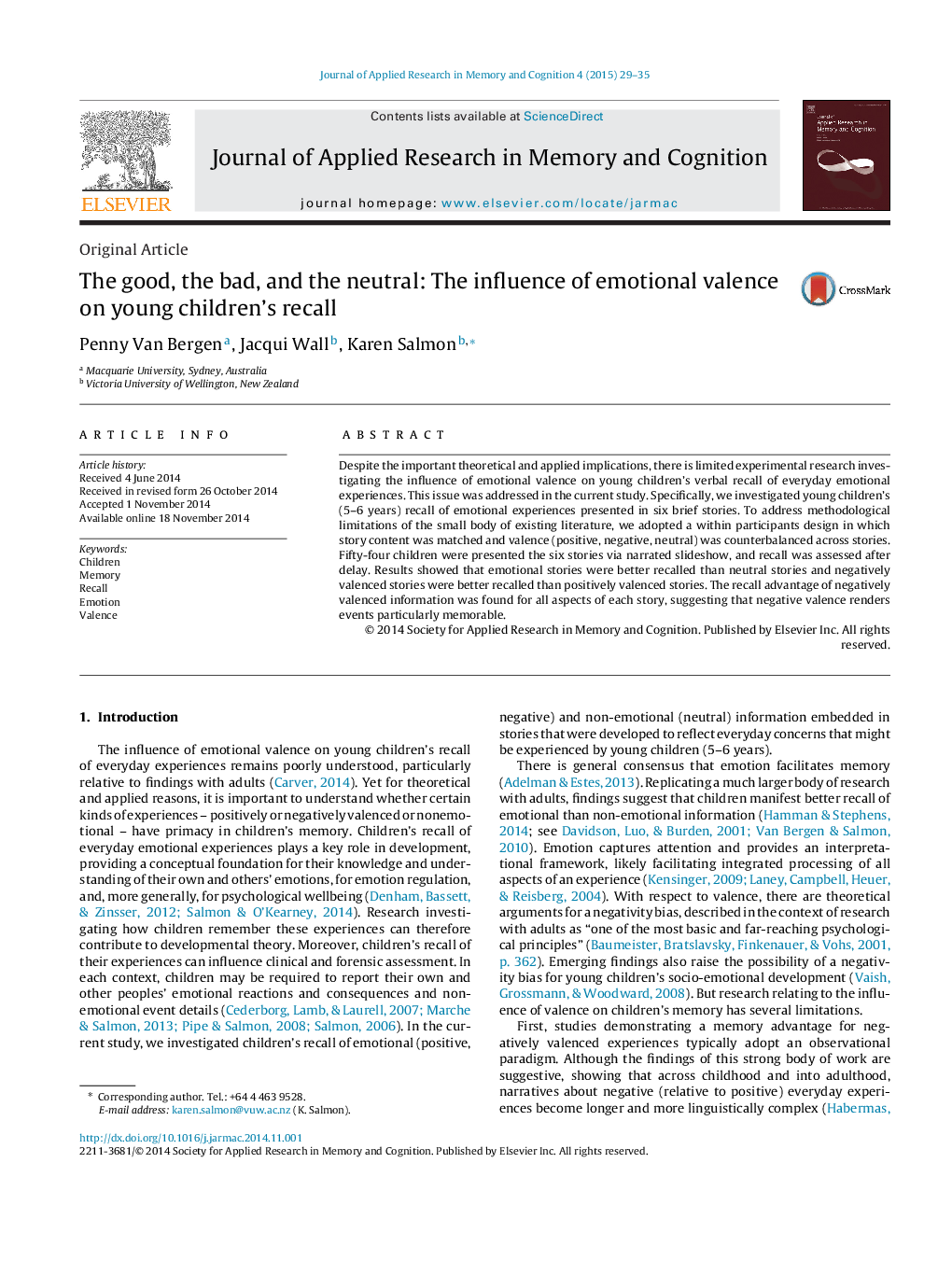| Article ID | Journal | Published Year | Pages | File Type |
|---|---|---|---|---|
| 881598 | Journal of Applied Research in Memory and Cognition | 2015 | 7 Pages |
•We examined how young children remembered stories of everyday emotional experiences.•We matched the stories as much as possible in all ways other than their valence.•The children remembered negative stories better than positive or neutral stories.•This supports the idea of a bias towards noticing and remembering negative information in development.•Adults can have confidence in young children's reports of their everyday experiences, particularly those that are negative.
Despite the important theoretical and applied implications, there is limited experimental research investigating the influence of emotional valence on young children's verbal recall of everyday emotional experiences. This issue was addressed in the current study. Specifically, we investigated young children's (5–6 years) recall of emotional experiences presented in six brief stories. To address methodological limitations of the small body of existing literature, we adopted a within participants design in which story content was matched and valence (positive, negative, neutral) was counterbalanced across stories. Fifty-four children were presented the six stories via narrated slideshow, and recall was assessed after delay. Results showed that emotional stories were better recalled than neutral stories and negatively valenced stories were better recalled than positively valenced stories. The recall advantage of negatively valenced information was found for all aspects of each story, suggesting that negative valence renders events particularly memorable.
